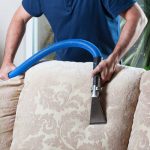9 Air Conditioning Maintenance Tips and Tricks
It's summertime, so your HVAC system needs to stay in shape. Keep cool this summer with our list of air conditioning maintenance tips and tricks.
Keyword: air conditioning maintenance
How's that old HVAC system treating you? Checking in on your system regularly is a lot more important than you would think.
There are a number of things that you can do on your own to ensure the quality of your results and your family's health. Whether you have an HVAC system or not, the ventilation and cooling processes in your home directly impact the air you breathe.
We're going to go over a few tips and tricks for air conditioning maintenance so that you can stay cool and healthy this summer.
Air Conditioning Maintenance Tips
Some of these tips won't apply to everyone. Systems are different, and different homes have unique methods of cooling. With that said, most HVAC and air conditioning systems are comprised of similar parts.
We're going to cover a number of the most essential parts of home maintenance and let you know of some instances where you'll want to call a professional.
Let's get started:
1. Air Filters
The thing in your system that will need the most maintenance is going to be your filter. This is a great thing, too, because a filter can really only be changed or cleaned.
Unless you have a really high-end air conditioning system, you should be able to clean or change the filter yourself. How regularly you change your filters will depend on the style of filter that your system requires.
If you aren't sure, an internet search should easily clarify the sort of filter you have and what is required to maintain it. At the very least, you can check on your filter and clear it as well as you can, replacing it and improving the quality of your home's air.
2. Coil Cleaning
Your coils will encounter and collect a lot of dirt over time, especially if they're outside. That dirt can prevent the coils from evaporating and condensing, diminishing the quality of work that the system does.
You won't be as comfortable because the temperature won't quite as hot or cold as it could be, and your system might end up using more energy as a result of the dirt.
3. Evaporator Gas Level
Many systems have an evaporator which is really the heart of the system's operation. Heating and cooling begins, generally, in the evaporator.
You should be able to check the evaporator's gas level. That level must be in check if you want your system to function properly. You may be able to fill the gas yourself, but if there are no clear instructions for your system we recommend calling a professional.
4. Condensation Drain
The condensation drain line is typically that screen in your outside unit that kids push up and down to make designs on. If you're not familiar with that description, you can look at your system manual.
Often times, those screens become dirty and clog moisture. When the lines are blocked, the system can't function properly and condensation turns to moisture which backs up and can cause leaks.
You can clean these parts by spraying them or scrubbing them out. Just make sure that the system is clear of debris!
5. Straighten Your Fins
The "screens" mentioned in the last section are also referred to as "fins." It's important to keep these straight, as bends and dents in them can lead to buildup. It's also important for airflow and condensation to move them.
You can use a "fin straightening tool" to do those or simply find a piece of equipment in your home that will do the trick. Be careful, though, because these are sensitive parts of the system.
6. Cover Your Units When Not in Use
If you're leaving your home for an extended period of time or not using your conditioner during winter, try to cover them.
This doesn't have to be too sophisticated. Just try to put some sort of cloth over the outdoor units or surround them with pieces of plywood. The idea is to prevent any debris from entering while the system isn't being used.
7. Keep Your Condenser in Balance
Sometimes, we place our outdoor condenser systems onto soil that is susceptible to slight changes over time.
It's important that these are kept on an even surface in order to function properly. When one piece of soil sinks as the season changes, the system will not work as well as it could.
You can raise your system up onto a pad of some kind or look into having it placed on a solid bed of concrete.
8. Introduce Smart Technology
Smart thermostats and similar home technology can be introduced to your system with a few upgrades. These will greatly reduce your energy use if you program them correctly.
Additionally, you can have a higher degree of control when it comes to heating and cooling your home. In most cases, you can adjust the thermostat from your phone even if you're not in the house.
9. Play it Safe
The basic maintenance listed above should be dealt with on your own terms. Simple HVAC issues don't always need to be dealt with by a certified professional.
With that said, many issues do require professional help. Things dealing with your ducts or malfunctioning systems are serious matters. There are few things that affect your health more than your air quality.
Respiratory illness is a reality and you could put yourself in danger if you aren't careful with your ducts and air conditioning systems. If you haven't had a checkup in a while, there's no harm in having one done soon.
You probably won't notice when things are going wrong, either. HVAC systems are trusty, but there's no telling when there is mold or other pollutants in your air.
Need a Cleaning?
Regular air conditioning maintenance is a must. It's best to get a servicing out of the way so that you don't forget to have it done and you can stop worrying about the quality of your air.
Keep up on different ways to maintain your home system as well. Explore our site for more DIY tips on maintenance.











